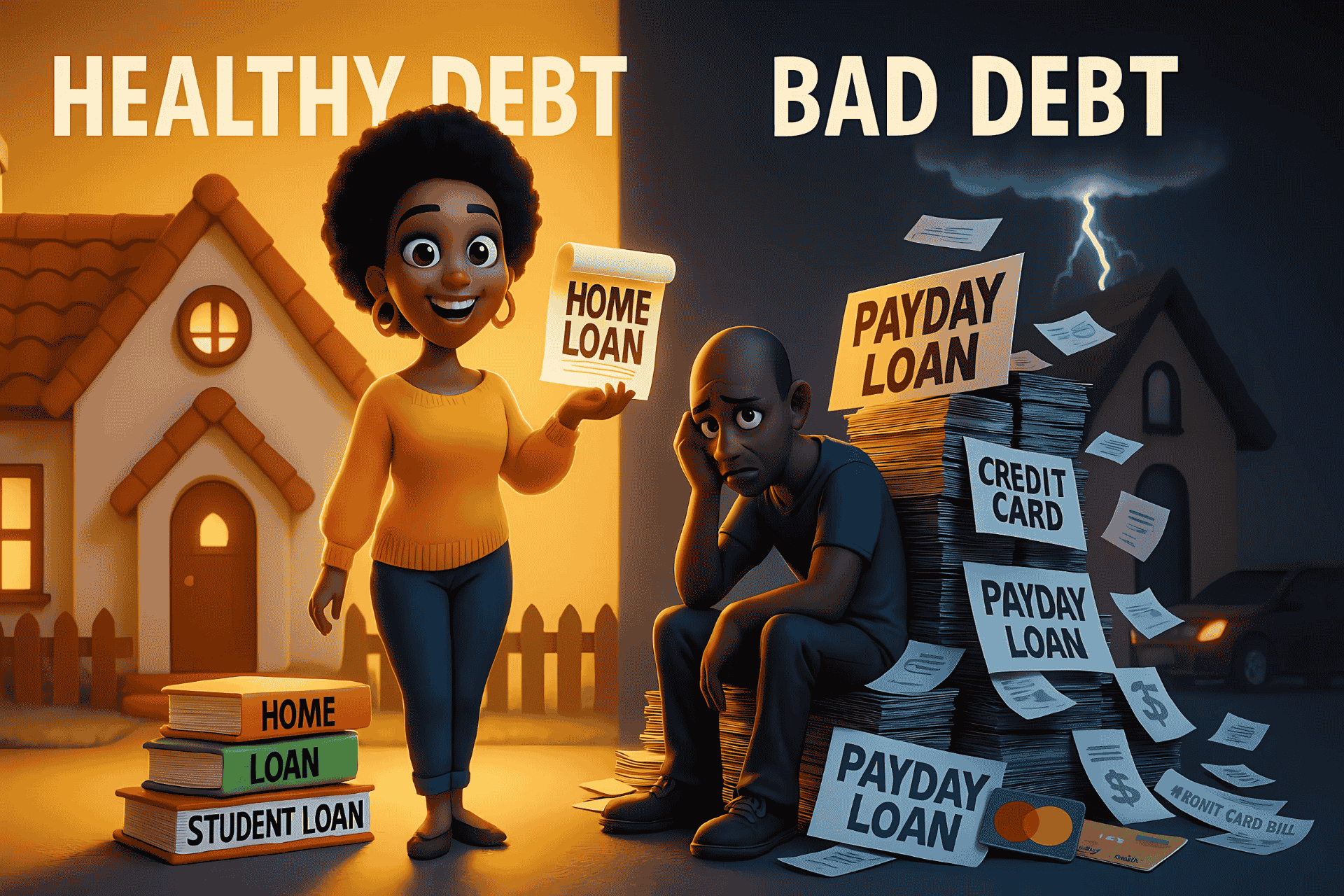Budgeting - The Strongest Tool to Assist with Your Finances
Introduction
Money management can feel like a daunting task, especially when faced with rising living costs and unexpected expenses. However, budgeting stands out as the most effective money management tool to regain control over your finances. A well-structured budget doesn’t just help you pay your bills on time—it serves as a roadmap to financial success and long-term stability. By adopting good financial practices, you can avoid the pitfalls of debt and pave the way to achieving your goals.
This article explores the dangers of unchecked spending, how debt can spiral out of control, and why budgeting is a powerful ally in ensuring financial security. If you’re looking for financial help, this guide will provide actionable insights to empower you on your journey to better money management.
Dangers of Indeterminate Spending
Indeterminate spending—or spending without a clear plan—is one of the fastest ways to lose control of your finances. When money flows out of your account without being accounted for, it becomes difficult to track where it’s going, leaving you vulnerable to overspending and missed obligations.
Why Indeterminate Spending is Risky
- Hidden Expenses: Without tracking your spending, small, frequent purchases can accumulate into significant amounts.
- Missed Priorities: Indeterminate spending often results in essential expenses, such as rent or utilities, being neglected.
- Increased Stress: The uncertainty of not knowing whether you have enough money for necessities can lead to financial anxiety.
Budgeting eliminates this uncertainty by giving every rand a purpose. With a plan in place, you can identify unnecessary expenses and redirect funds toward your priorities.
Digging the Debt-Hole
Unchecked spending habits often lead to debt. When income doesn’t cover outgoings, the temptation to rely on credit cards, payday loans, or other borrowing methods can create a vicious cycle of debt accumulation.
How Debt Escalates
- High-Interest Rates: Borrowing to cover expenses often comes with exorbitant interest rates, making it harder to repay the original amount.
- Living Beyond Means: Relying on credit to sustain a lifestyle that exceeds your income leads to chronic over-indebtedness.
- Missed Payments: Falling behind on repayments can result in penalties, wage garnishments, or a damaged credit score.
If you’re struggling with overwhelming debt, consider seeking debt help through professional services like debt review, which can restructure your payments and provide breathing room.
Value of Knowing Your Exact Financial Situation
Understanding your financial situation is the foundation of effective money management. Without a clear picture of your income, expenses, and obligations, it’s impossible to make informed decisions or plan for the future.
Steps to Assess Your Financial Situation
- Track Your Income: Record all sources of income, including salaries, side hustles, or passive earnings.
- Monitor Expenses: Categorize your spending into essentials (rent, groceries) and non-essentials (entertainment, dining out).
- Calculate Net Worth: Subtract your total debts from your assets to determine your financial standing.
By adopting budgeting as a financial help tool, you’ll have the insights needed to steer your finances toward success confidently.
Strength of Strict Budgeting
A strict budget is a powerful tool for taking control of your finances. While it may sound restrictive, the discipline it instils leads to freedom from financial worries and greater confidence in achieving your goals.
Key Elements of a Strict Budget
- Zero-Based Budgeting: Assign every rand a specific purpose, ensuring no money is unaccounted for.
- Emergency Fund: Set aside a portion of your income for unforeseen expenses, like medical bills or car repairs.
- Savings Goals: Allocate a percentage of your income toward long-term goals, such as buying a home or retirement.
Strict budgeting may require sacrifice initially, but the long-term rewards—freedom from debt, financial growth, and peace of mind—make it worth the effort.
Avoid the Debt-Trap by Means of Budgeting
Debt traps occur when borrowing becomes a necessity to cover day-to-day expenses. However, budgeting serves as a proactive defence against falling into this cycle.
How Budgeting Helps Avoid Debt
- Prevents Overspending: A budget sets clear limits, ensuring you don’t spend more than you earn.
- Builds Resilience: With an emergency fund in place, you won’t need to rely on loans during tough times.
- Promotes Savings: Allocating money for future goals reduces the temptation to borrow for large purchases.
By integrating budgeting into your daily routine, you’ll be better equipped to avoid the pitfalls of debt and achieve lasting financial stability.
Conclusion
Budgeting is the cornerstone of good financial practice and the strongest tool for achieving financial success. It empowers you to track your income, control your expenses, and make informed decisions that align with your goals. Whether you’re trying to escape debt or build a brighter financial future, a solid budget is your greatest ally.
Remember, financial freedom begins with a plan. Start budgeting today to take control of your finances, avoid the debt-trap, and unlock the path to long-term stability.
Discover Your Debt Relief Solution
Learn more about our debt relief services today
Read More of Our Latest Blog Posts
We take care to bring you only the highest quality information, right to your fingertips. Read more below:
Satisfied Customers
Read what our customers have to say about us.
"Thank you DebtCut! Thank you very much! You helped me take care of my family. I will not make debt again."

"DebtCut gave me a second chance. I was in so much debt that I couldn’t see a way out. With debt review and over time, I cleared all my debts. It’s a disciplined process, but it works!!”

Take Control of Your Finances Today!
Contact DebtCut today to learn how we can help you achieve financial freedom.











